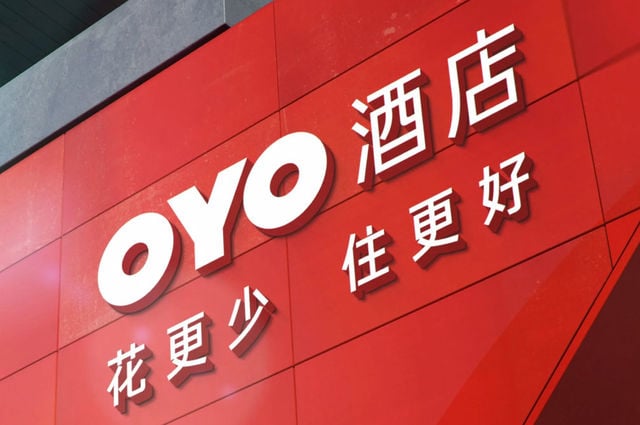Is OYO Hotels the next WeWork of the hospitality industry?
8 experts shared their view
Funded by SoftBank, which also bankrolled WeWork, today OYO has a a valuation of $10 billion (more than Choice Hotels and Wyndham Hotels combined) and boasts being the fastest growing chain in the world with over 1 million rooms in its portfolio. Beneath the PR glitz some industry experts see major structural and business model flaws: overhyped tech stack that often fails, "novel" revenue management approach of pursuing occupancy at any cost by lowering rates in periods of peak demand without the approval by ownership, as well as lack of brand recognition among the traveling public, forcing Oyo to rely on third-part resellers like Airbnb, HotelBeds, OTAs, etc. Is Oyo Hotels and Homes a great success story or is it another example of a cash-burning startup that will crash the moment cash infusions dry up?
Despite the many questions about its operating procedures and even its added value, OYO is challenging the stagnant thinking that has characterized hotel chains for nearly a generation. Despite claims about their innovativeness, hotel chains, and in particular their outdated, non-performance related, business models have stifled both creativity and change. Even if it hasn't got it right as yet (remember a key characteristic of startup companies is 'iterate', OYO at least is forcing hotel owners to think long and hard about what they want (and perhaps do not want) from a brand. Something that can only be a good thing in the long run!
1. If we only look at OYO Rooms, one of its greatest strengths (as Temasek reports) is to offer "reliable accommodation at a fraction of the price." OYO's CEO himself complained about the industry unbalance between demand and supply on many occasions, so I am not particularly outraged by its aggressive revenue management strategy: it's a means to an end and, for what I've seen so far, it's working.
2. OYO realized in one year what chains didn't in 100: up to "90% of the assets in the hospitality industry are small or independent hotels with less than 100 rooms." That's virgin territory, and OYO is Christopher Columbus.
3. OYO was able to rapidly create personalized products for different travelers: business/corporate (SilverKey, Collection O), mid/up-scale (Capital O, Palette), young (Townhouse, LIFE), alternative (Home, Vacation Home, Airbnb's investments, Leisure Group acquisition), bedbank (Hotelbeds' partnership), etc. Brands? Sub-brands? Chains? Semantic nuances, OYO has you covered.
4. OYO's lack of brand recognition is the consequence of its eclecticism. Booking.com has been listing non-traditional accommodations +20Y now, yet, to most, it is still a hotel-only (or, at least, a hotel-first) OTA, so it's not surprising that many amongst us haven't figured out what OYO's core biz is.
5. Tech. Here is where things become complicated. Creating a solid, efficient ecosystem is crucial for OYO, but the efforts to standardize can fail miserably at the moment of truth: OYO properties are unbranded, with a maelstrom of different legacy platforms. The recent acquisition of Danamica could help OYO being more accurate with pricing but doesn't help hoteliers with '90s software.
Conclusion: rapid growth is a good problem to have and, IMHO, OYO is managing it quite well.
Wow, that's a bit of a stretch! My read on the WeWork fiasco is that there were a lot of 'irregularities' in the company's management, accounting, ethics, etc. that a lot of people were willing to overlook in the hope of making a lot of money; the whole thing came crashing down when a few intrepid souls like Ben Thompson brought the irregularities to light.
My read on OYO is that it's a company run by well-meaning (but young and relatively inexperienced) management who had a great idea and are trying hard to scale it all very, very quickly. I'm a little amazed that they've been able to do what they have in so little time, and there are bound to be problems when you try to go so big and so fast. I think they'll get a handle on things and eventually, the problems will settle down.
Another complication is the investment from SoftBank, which is a real double-edged sword. Having too much cash from an investor puts a monkey on management's back and can lead to some crazy how-can-we-burn-that-cash behaviors that are counter to the interests of the company.
On balance, I haven't read anything that I think would burn up the company's chances of success. So no, I don't see them as the new WeWork at all, and I wish them luck!
OYO Hotels' meteoric rise resembles a great extent the hyper-growth of WeWork. The question is: Is this rapid growth a good thing, especially in a traditional industry like hospitality? I believe Oyo's growth came at the expense of cutting corners, some big corners at that.
Technology: Oyo's mandated cloud PMS is basic at best, lacks the depth and breadth of functionality expected from a PMS today and “often crashes.” Oyo's Channel Manager and CRS are basic at best, hoteliers complain Oyo's APIs with third-parties do not synch availability and pricing in a timely manner.
Business Model: Oyo's obsession with boosting occupancy at any cost by lowering rates even in peak demand at the expense of ADRs is against basic principles of economics and time-tested industry best practices.
Brand Equity: Oyo has no brand recognition, at least not in North America, which forces it to distribute its franchisees' inventory primarily through the major OTAs, Airbnb and the bed banks. Where is the value here to the hotel owner? Why do you need Oyo for your property to be on Expedia or Hotels.com - all you need is a Channel Manager like SiteMinder, which comes at a much lower cost.
How sustainable are Oyo Hotels with all of the above deficiencies, without a serious Book Direct strategy, without a repeat customer base of 50%-55% of room nights booked, without a recognized loyalty program? Oyo Hotels is clearly another WeWork in the making, so hoteliers beware!
The growth of OYO is not a surprise. On one hand, strong demand for economy hotels for the Indian and Chinese middle class. And on the other the money. With big money, it is easy to develop. This physical expansion phase being mostly done, OYO needs now to focus on long term value and profitability. The challenge is there: can they keep the right level of service, create and maintain a good brand image, respect their promises to the guest? While keeping their investors happy?
Hospitality and finance are two different worlds. It is hard to focus on the service while focusing on the ROI and it is causing fights between operators and investors often leading to a decrease in quality.
Higher the risk, higher the reward. OYO can either be a great success or a great fiasco.
The overall scenario seems a good advertisement for brand power, although perhaps gone slightly awry following the current 'rapid saturation' approach to business growth. The first factor that is apparent to me is that OYO's target market has been the based upon lower-tier accommodation products, which has been without genuine at scale brand representation across countries or continents and certainly in their home markets. The second factor is that the base of the business began in India in basic/lower tier accommodation that would be less sophisticated operationally and probably without existing technology platforms.
With industry press trumpeting the value of upscale big brands, owners' interest in a brand on top of systems and performance commitments is understandable. Particularly where there is no prior affiliation. Low hanging fruit.
It's no small matter to build a functional cross-border customer, distribution and hotel operation technology platform. Plenty of anecdotal evidence to support that challenge in our industry. Stepping across international borders would also be expected to bring about some learning curves for all involved. Meeting a more sophisticated operator/owner combination who is savvy with distribution and revenue management practices would expose limitations, particularly as OYO looks to ascend the accommodation scale/move to more developed countries or replace incumbent brands.
From an international perspective, I feel it is too early to pass judgment on OYO's overall commercial success. From the brand footprint view despite some noise and detractors, owners continue to embrace and adopt the brand. This aspect of the business would appear wildly successful thus far...
The motels/hotels/guesthouse/BnB OYO manage were already there. If OYO should fail the bricks and mortar will remain after the brand is gone.
We should acknowledge Ritesh Agarwal's achievement as a young entrepreneur who has built a successful global business in six years that other hotel chains have struggled to achieve in 50+ years. OYO is the fixer-upper of hotel chains. They do very fast, cheap makeovers to get the bare basics of a consistent brand and then get properties selling asap in order to receive their 25% commission which they need to pay back investors like Softbank who are underwriting much of the cost to renovate properties. The commission model makes OYO more like an OTA than a hotel chain, perhaps that's what made it desirable to SoftBank in the first place.
The operational kinks will be worked out because budget hotel rooms have to offer a good guest experience, just like everyone else. That positive guest experience will be needed if they are to increase brand awareness and encourage loyalty to reach their growth targets. I expect an IPO within the next 2 years so it'll be a race to expand the OYO business as they work towards that, although they deny that's being planned at the moment.
We will certainly find out how resilient the brand is during the next recession! That being said, there's a big difference between building out massive square footage in pricey urban cores and rolling up existing hotels under one brand umbrella. The cost structure isn't exactly analogous here. What is concerning is all of these alt lodging brands seemingly masquerading as tech companies rather than focusing on the core principles that drive most hospitality companies. The valuations of many of these emerging brands don't match reality. And that's the most concerning to me — we will surely see a shakeout in the not-to-distant future!








